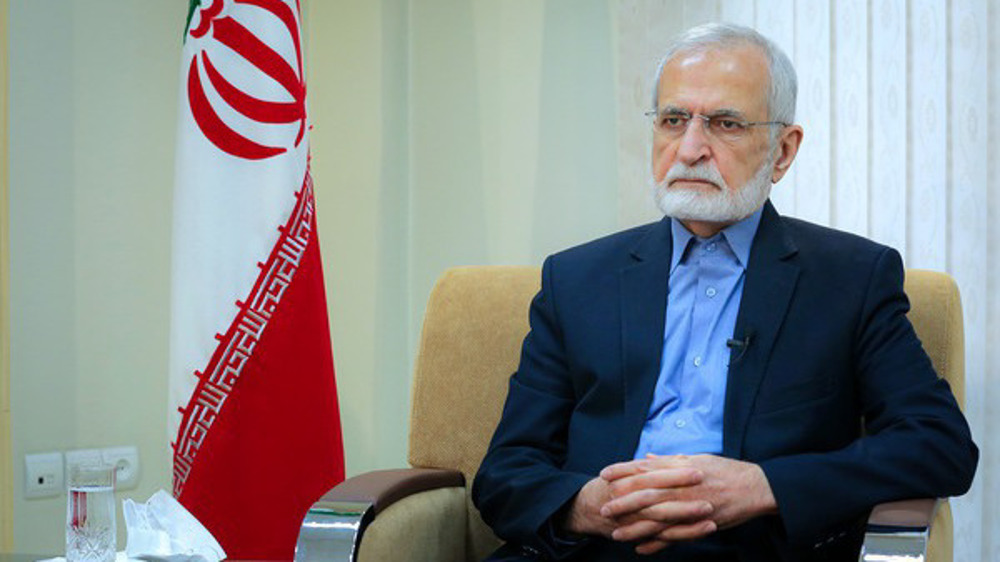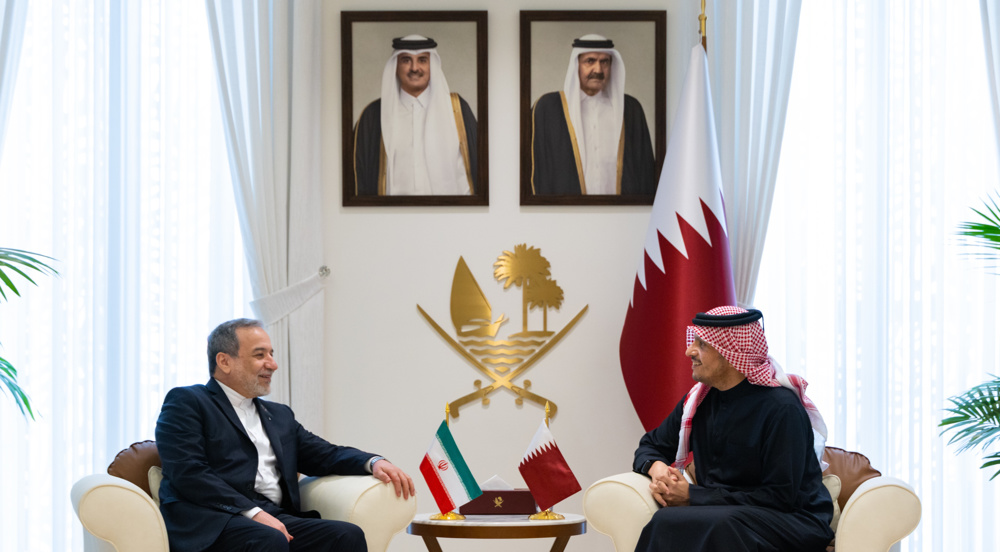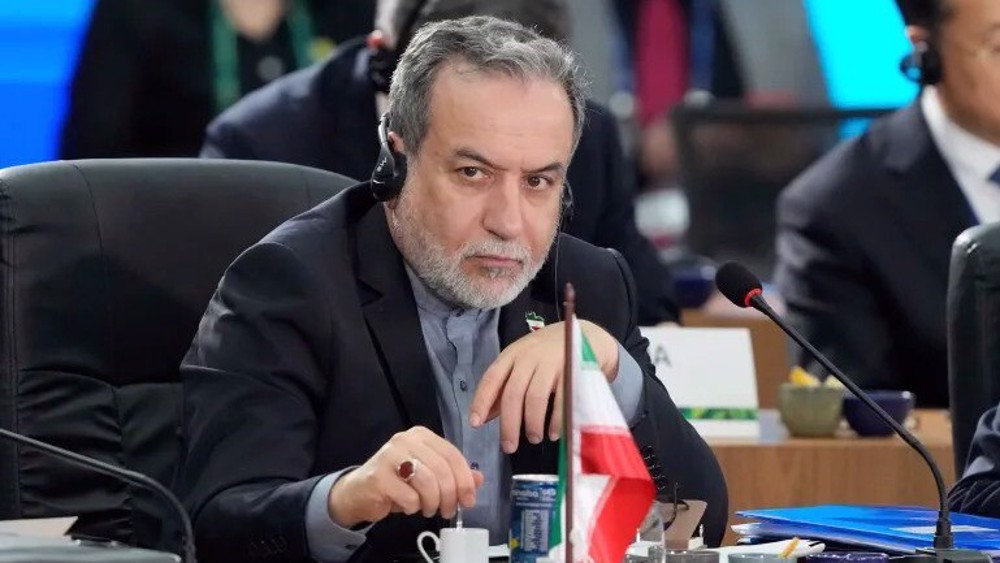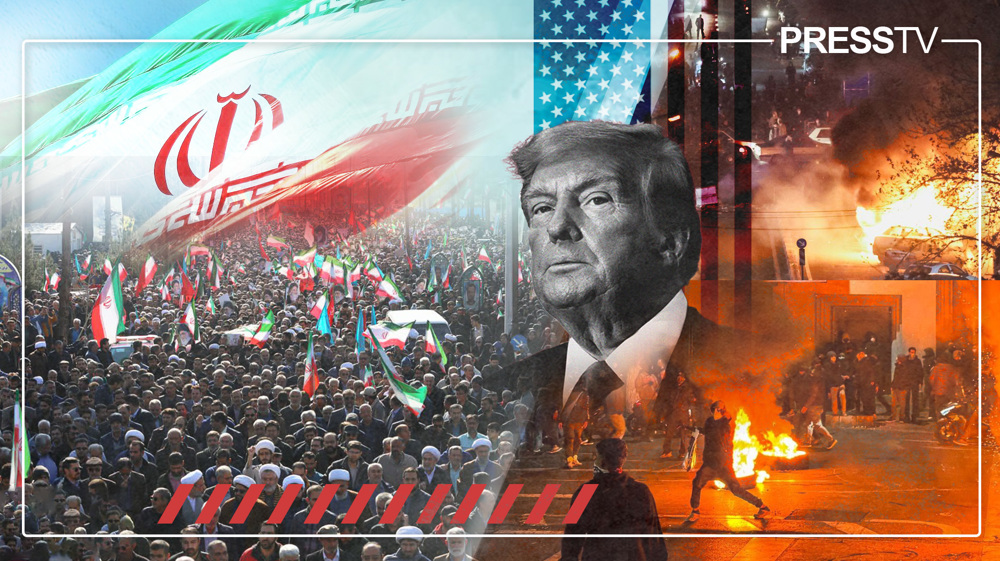US return to JCPOA without lifting sanctions amounts to extortion: Iran official
The president of Iran’s Strategic Council on Foreign Relations says a possible US return to the landmark nuclear deal with Iran must take place after all anti-Tehran sanctions are lifted because, with the sanctions in place, Washington’s return to the deal amounts to “extortion.”
Kamal Kharrazi made the remarks in an exclusive interview with Khamenei.ir, the official website of Leader of the Islamic Revolution Ayatollah Seyyed Ali Khamenei, whose text was published on Thursday.
Under Donald Trump, the US withdrew from the 2015 nuclear accord between Tehran and six world powers, which is formally referred to as the Joint Comprehensive Plan of Action (JCPOA), and imposed harsh economic sanctions on Iran. The Trump administration also put in place secondary sanctions, targeting those that do business with Iran.
“If the US decides to return to the JCPOA without lifting sanctions, this would amount to extortion, because [the US] will put forward a new request for the lifting of every ban,” Kharrazi said.
“Therefore, the correct path for the US to take before returning to the JCPOA is to lift all the sanctions that were imposed in the form of executive orders by the US president, be it nuclear-related [sanctions] or [those sanctions] slapped under the labels of terrorism and human rights,” he added.
Following the 2018 US withdrawal from the JCPOA, Tehran waited an entire year and then began to scale back its commitments under JCPOA, after the other parties to the deal – the European trio in particular – failed to protect its economic interests.
However, Iranian officials have stated on numerous occasions that the move will be reversed as soon as they return to full compliance with the deal and protect Iran’s interests.
Meanwhile, hopes were raised over a possible revival of the JCPOA after the November 3 presidential election in the US, which saw former Vice President Joe Biden defeating Trump.
Asked to comment on Iran’s possible response should President-elect Biden decide to return to the JCPOA under the condition that Iran would be open to negotiating its peaceful missile program and regional activities, Kharrazi said this is also some kind of extortion, because the nuclear pact has a clear text that does not include such issues.
“We agreed to discuss nuclear issues, we reached an agreement and we remained committed to our obligations until they reneged on theirs, and in exchange, we reduced our commitments,” he said, adding that there’s nothing more to discuss with regard to the already negotiated deal.
On the Iranian Parliament’s passing into law a motion that tasks the government with scaling up Iran’s nuclear program, Kharrazi, who is a former foreign minister, pointed out that the new law is based on the text of the JCPOA.
“Article 36 of the JCPOA enables us to reduce our commitments in response to violation of commitments by the other sides,” he argued, adding, “This shows that we are serious with regard to our commitments, but at the same time, [it shows] that we won’t remain silent in the face of non-compliance of the other signatories and that we will take advantage of our rights.”
Early last month, Iranian parliamentarians voted in favor of the Strategic Action Plan to Counter Sanctions, tasking the Iranian administration with suspending more commitments under the JCPOA.
The law, among other things, requires the AEOI to produce at least 120 kg of 20-percent enriched uranium annually and start the installation, gas injection, enrichment and storage of nuclear materials up to an appropriate enrichment degree within a period of three months using at least 1,000 IR-2m centrifuges.
Elsewhere in his remarks, Kharrazi said the Islamic Republic has proved in the last forty years that Iran’s national interests and independence are the country’s most important priorities, which need to be safeguarded.
“We’ve fought off acts of bullying and pressure,” he remarked, adding that Tehran will never yield to US pressure to abandon its independence and interests.
He went on to say, however, that the US withdrawal from the JCPOA inflicted huge damage on Iran.
“They signed a document and they should have been committed to it, but they violated their commitments. The US withdrew from it and started to impose sanctions. They sanctioned more than 1,500 Iranian companies or individuals, and that does not include [bans on] organizations and other sanctions,” the former diplomat noted.
Kharrazi also highlighted the need for Iran to stand up to such acts of bullying by trying to “neutralize the sanctions.”
In remarks on November 24, Ayatollah Khamenei called on Iranian officials to spare no efforts to neutralize the sanctions, instead of only trying to have them lifted.
The Leader said there are two ways to end the unlawful bans, either by “neutralizing the sanctions and overcoming them” or having “the bans lifted.”
“Of course, we tried the path of [having] the sanctions lifted once and negotiated for several years [to that effect], but it produced no results,” the Leader said, adding, “We have a lot of potential and capabilities to render the sanctions ineffective, provided that we muster the will, strive and meet the challenges outright.”
Mediterranean dockworkers stage coordinated strike in solidarity with Gaza
US intel. chief blocked report on ‘call between foreign agent and Trump associate': Whistleblower
VIDEO | Al-Zahra: Once vibrant Gaza City reduced to ruins in Israeli bombing and selling
Iraqi volunteers enlist to support Iran against potential US attack
ICE secretly deports Palestinians in Trump ally's private jet to Israel: Report
VIDEO | Press TV's news headlines
IRGC captures nearly a dozen PJAK terrorists in western Iran
Iran, Qatar say keeping regional peace is shared responsibility



















 This makes it easy to access the Press TV website
This makes it easy to access the Press TV website